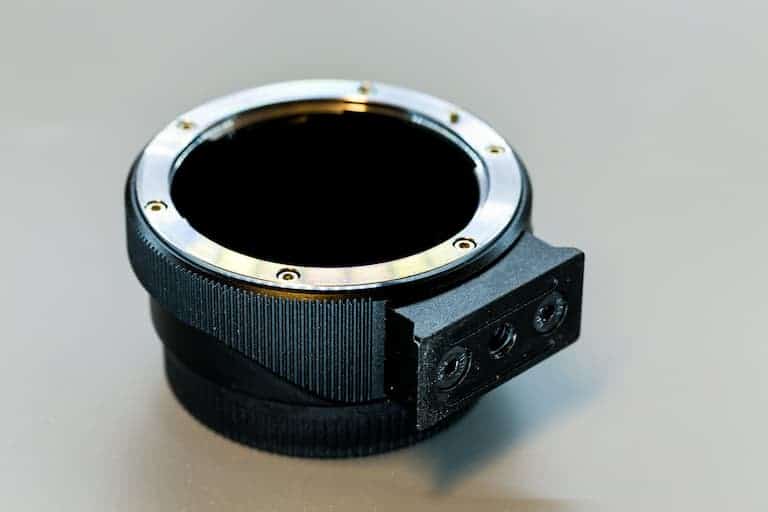Lens adapters are professional photography and videography equipment that allows you to combine a camera and lens that would otherwise not be compatible. If you’re using a Canon, for example, but want to switch to a Sony lens, an adapter will allow you to use any Sony lens on the body of your Canon. However, photographers often wonder how these adapters affect image quality, if at all.
Lens adapters can affect image quality, depending on the type of adapter, camera, and lens being used. While the image quality may not be significantly affected, it’s essential to do your research to discover what adapter will be a good fit for your personal photography setup.
The rest of this article will discuss lens adapters in-depth. It will explore the function of focal length and aperture with a lens adapter, and give advice on what type of adapter to purchase. Read on to learn more about lens adapters and how they can affect your images.
Table of Contents
Image Quality With Lens Adapters
Lens adapters are helpful tools for various reasons, but they primarily make it possible for photographers and videographers to use varying brands of lenses and cameras to capture their subjects. In addition, they’re widely used by many different artists, which shows their effectiveness in a variety of scenarios.
However, that being said, you should take caution when using lens adapters, making sure to purchase high-quality brands and ensure the adapter’s compatibility with your lenses and cameras.
Some Adapters Distort the Final Image
In this YouTube video, a vintage photographer describes his scientific approach to determining whether or not image quality is compromised using lens adapters:
Essentially, this photographer used several different adapters at various price ranges and brands. From the highly esteemed Metabones to cheap finds under $10 on eBay, he tested all of them with his Nikon F4 G-Mount. From his research, it was clear that some of the adapters did, in fact, distort the image and weaken the sharpness of the photos.
If you want to get even more technical, check out this article from Lensrentals that discusses the effectiveness of lens adapters in terms of optics. The article describes how lens adapters can shift the image off-center. It’s also important to note that other variables can contribute to image quality, including the mount you use.
While some image distortion can be observed when a lens adapter is used, it isn’t significant or incredibly noticeable, as displayed in the above-mentioned YouTube video.
Generally, the image quality depends on the lens, the camera, the mount, and the lens adapter used to take the photo.
Do Lens Adapters Affect Focal Length?
Focal length is the basic description of a photographic lens. It’s the optical distance from the image’s position in relation to the camera’s focal plane.
Lens adapters don’t affect focal length. However, specific lenses and cameras can change the perceived focal length of the image. This can be done by using the camera’s crop factor features. You can use this functionality to make the image appear closer than it is.
Overall, the image quality and the focal length can be minimally disrupted by using moderate to high-quality lens adapters. However, if an adapter is poorly constructed or broken, it can negatively impact the optical performance of the image.
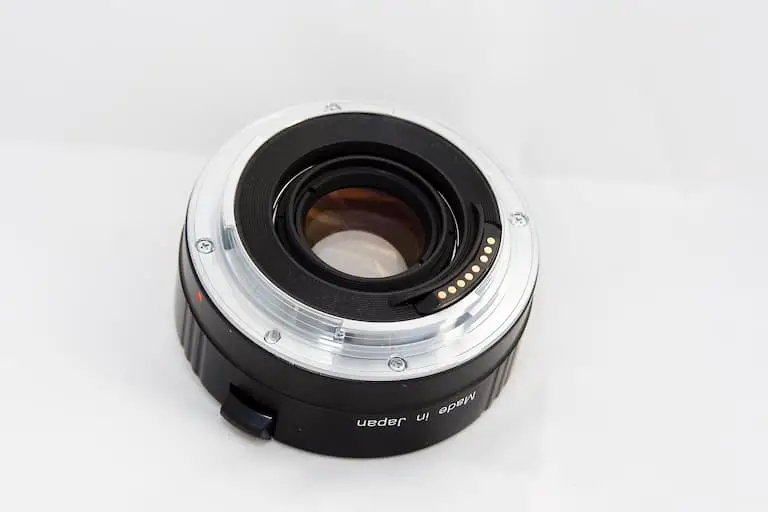
Consider Using Lens Adapters for Photography Experimentation
Without the fear of affecting the focal length or significantly damaging the optical performance of your images, there’s no good reason not to try out a lens adapter. In addition, lens adapters can be relatively inexpensive ways to experiment with your photography.
Understanding focal length and how to manipulate it can enhance your photos on multiple levels. There are benefits, for example, of experimenting with zoom and playing with wide-angle lenses that can alter the focal length. Don’t be afraid to try new lens techniques as you experiment with your personal photography style.
To learn more about focal length and its impact on your photography, check out this article from Nikon USA.
Do Lens Adapters Affect F-Stop?
F-stop is photography jargon that refers to the aperture measurements on your camera. The aperture controls the amount of light that enters the camera lens, which is measured in f-stops. If you’re using a lens adapter, you may be concerned about whether it will affect the f-stop.
Lens adapters affect f-stop if they have speed boosting or aperture function capabilities. Whether the lens adapter affects the f-stop depends on the camera and the particular lens adapter used.
The consensus on whether most lens adapters affect f-stop is mixed. In short, it depends on the lens adapter that you’re using. For example, if you’re using a teleconverter, then the aperture could change by 1 to 2 f-stops, according to the answers described here in Digital Photography Review.
Understanding the Importance of F-Stop
Because there are several different adapters and lenses to choose from, it’s essential to become familiar with the unique equipment that you have on hand. In addition, it’s important to remember that the f-stop is an essential feature. It helps ensure that the image you’re trying to capture gets the proper light exposure.
Additionally, f-stop features allow the photographer to alter the depth of field within the image. According to most photographers, the aperture and the f-stop primarily add stylistic elements to the image. So, unless you’re constrained by working in an area with extreme lighting conditions, the f-stop can add extra artistic flair and experimentation.
Do Lens Adapters Affect Aperture?
The aperture is the opening of the lens’s diaphragm. Once this is open, light can pass through and be manipulated and calibrated by using the f-stop function of the camera. If you’re using an adapter, you may be curious about how this affects the aperture, if at all.
Lens adapters can affect aperture, depending on the adapter and camera. However, most lens adapters don’t allow electronic data transfer from the lens to the actual camera. Thus, the aperture functions will not be affected by the adapter.
If you need to adjust the aperture while using a lens adapter, you must do so manually. However, some lens adapters can support electronic communication between the lens and the camera. If this is the case for your equipment, you should be able to adjust the autofocus as needed.
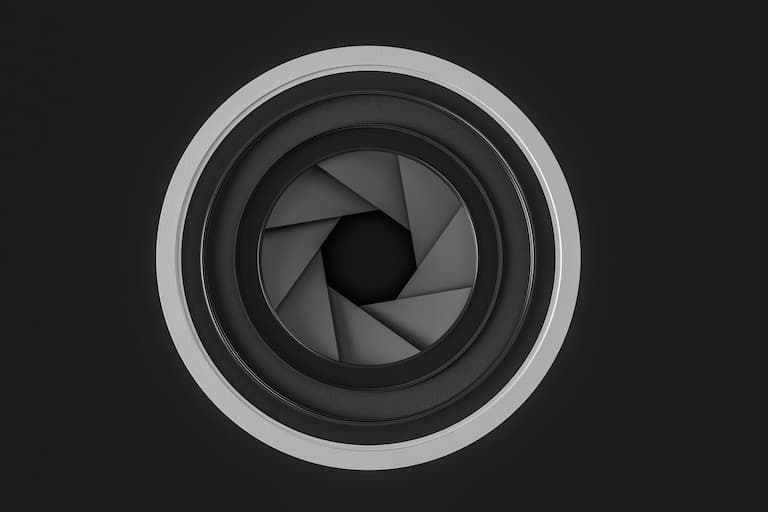
Adapters With Advanced Controls Can Alter Aperture
Some adapters even have advanced controls for aperture on the panel of the actual adapter rather than the camera. Again, whether you have these features available to you depends on what brand, model, and type of adapter you have.
The unfortunate reality is that the more controls a lens adapter have, the more expensive it tends to be. While you can purchase cheap adapters for under $10 on some marketplaces, the higher-end models and brands can cost upwards of $1,000. To learn more about aperture and how it functions with a lens adapter, check out this article from Urth Magazine.
Does Autofocus Work With Lens Adapters?
The autofocus feature on a camera is the system that automatically adjusts a camera’s focus. When you first press the shutter-release button, this is usually when the camera’s autofocus feature kicks in. If you’re using a lens adapter, you may be wondering what effect it has on the autofocus.
Autofocus works with some lens adapters, but most adapters cannot retain a camera’s autofocus features. Look into the features of your specific lens adapter to determine whether it is compatible with your camera’s autofocus functionality.
Generally, you lose the autofocus features with most lens adapters. So, when you’re using a lens adapter, you’ll likely need to manually and physically adjust the camera’s focus before shooting. However, one lens adapter that does continue to use a camera’s autofocus is the Canon adapter sold by Metabones.
Most lens adapters cannot transfer electronic information, like autofocus features. Some adapters have a confirmation chip that allows the camera to signal when a subject is in focus, but these will be more costly purchases than basic adapters.
Determining When To Use Lens Adapters
Lens adapters have notable advantages. First, they can significantly lower the costs associated with lens purchases if you decide to switch photography systems in the future. For example, if you decide to transition from using a Canon camera to using a Sony camera, you can simply purchase one adapter and use all of the Canon lenses on your new Sony.
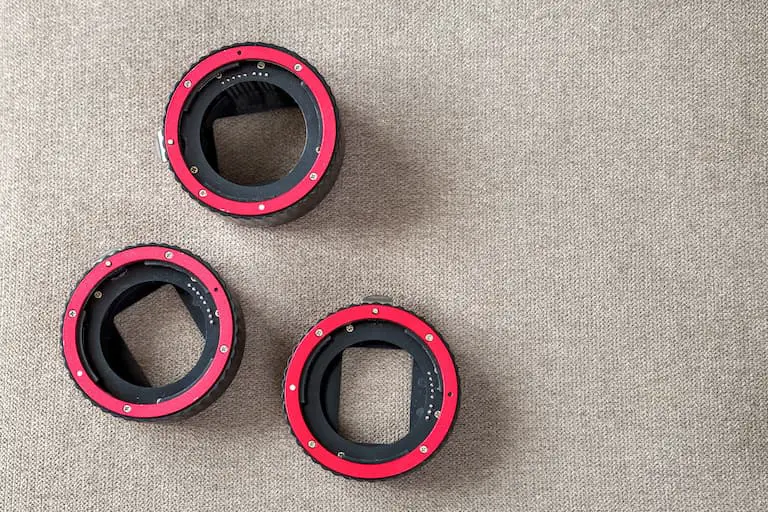
Knowing When To Avoid Using Lens Adapters
However, lens adapters aren’t without their disadvantages. There are situations when you may want to use the original lens and avoid adapting outside lenses.
Avoid Lens Adapters for Subjects in Motion
You may want to avoid a lens adapter if you’re shooting a moving subject or fast-moving image. If a subject is moving, especially if it’s moving quickly, you’ll want fast and precise focus capabilities. Unfortunately, most adapters don’t have the autofocus features enabled in a camera, as we mentioned earlier. As a result, it won’t react as quickly as you need to capture a moving image.
Lens Adapters May Not Pair Well With Wide-Angle Lenses
Another situation where you may want to opt for a native lens is if you’re using a wide-angle lens. A wide-angle lens could distort the image or video you’re shooting if it is paired with an adapter. While this can be fixed in the editing process, it’s one extra step you wouldn’t have to take if you opted for a native lens.
Consider Using Lens Adapters for Still Photos
On the other hand, a lens adapter could work well if you’re shooting stills like portraits and close-ups. It’s also important to note that all lenses and lens adapters are not made the same. As we discussed earlier in this article, each adapter will have pros and cons, especially when it comes to cost.
Factors To Consider When Choosing a Lens Adapter
Finding the right lens and adapter for your camera can dramatically improve your images and videos. In addition, lens adapters can give you some wiggle room for using different lenses, which can be handy for filmmakers who use multiple systems.
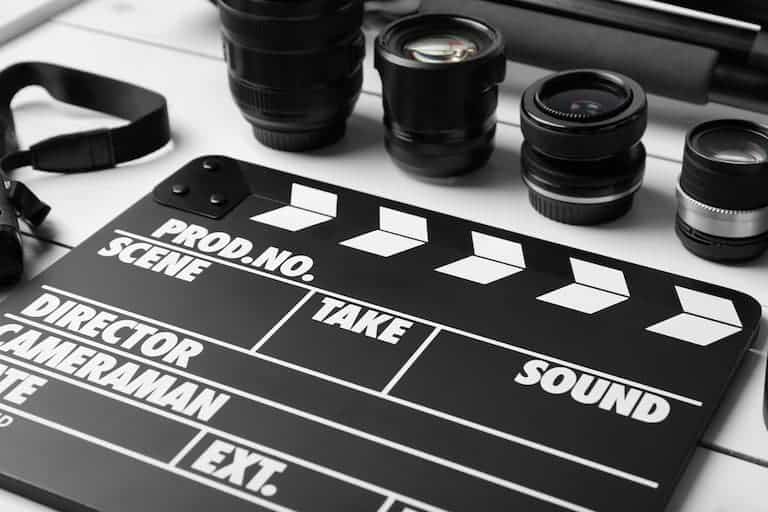
Take Drawbacks Into Account When Purchasing an Adapter
Some of the most significant drawbacks to most lens adapters is that many of them don’t pass electronic information and functionality between them and the camera. Sometimes adapters are good to use, and sometimes they can hinder your work. Overall, it’s essential to compare adapters to find the best fit for your images and shooting needs.
Highly-Rated Lens Adapters Typically Work Best
Some lens adapters that work well are the PL-Mount which stands for Positive Lock Mount. This adapter is known for its professionalism, durability, and compatibility with many cameras. But, unfortunately, it’s on the higher end in terms of cost.
Another option you may want to consider is the E-Mount, the Sony Mirrorless Mount. It’s not known for its durability, but it’s highly compatible with many Sony products.
To see more lens adapter options, check out this list from Studio Binder.
Knowing What Type of Lens Adapter To Get
The type of lens adapter that you’d get depends on the work that you’ll be producing, your current equipment, and the budget you’re working with. As we’ve mentioned before, some lens adapters are expensive, but they come with handy bells and whistles. Others, however, are basic in functionality but easier on your wallet.
The internet thankfully makes it simpler for us to find and research items we need. In this case, we would suggest using Urth Magazine’s guide for finding the right lens adapter for you. On their lens adapter page, you’ll select your camera system and then find a selection of available lens adapters where you can also select your specific lens mount.
We would also check out this list of the best camera lens adapters from Find This Best. This list features the best lens adapters of 2022 and shows reviews, pros, cons, and everything you need to make an informed decision. At the end of the day, the type of lens adapter that you get should meet your personal needs and produce the highest quality of image you desire.
Conclusion
Lens adapters have the potential to save photographers and videographers money by replacing additional expensive equipment.
When you have a mix of lenses and cameras from multiple brands and systems, it can be discouraging not to be able to use them all when you need them. Thus, lens adapters serve an essential role in bridging the gap between brands and systems.
Unfortunately, not all lens adapters are created equal. Some are expensive but have a lot of features like electronic information sharing, while others are cheap but require manual adjustments for every function like aperture.

